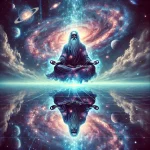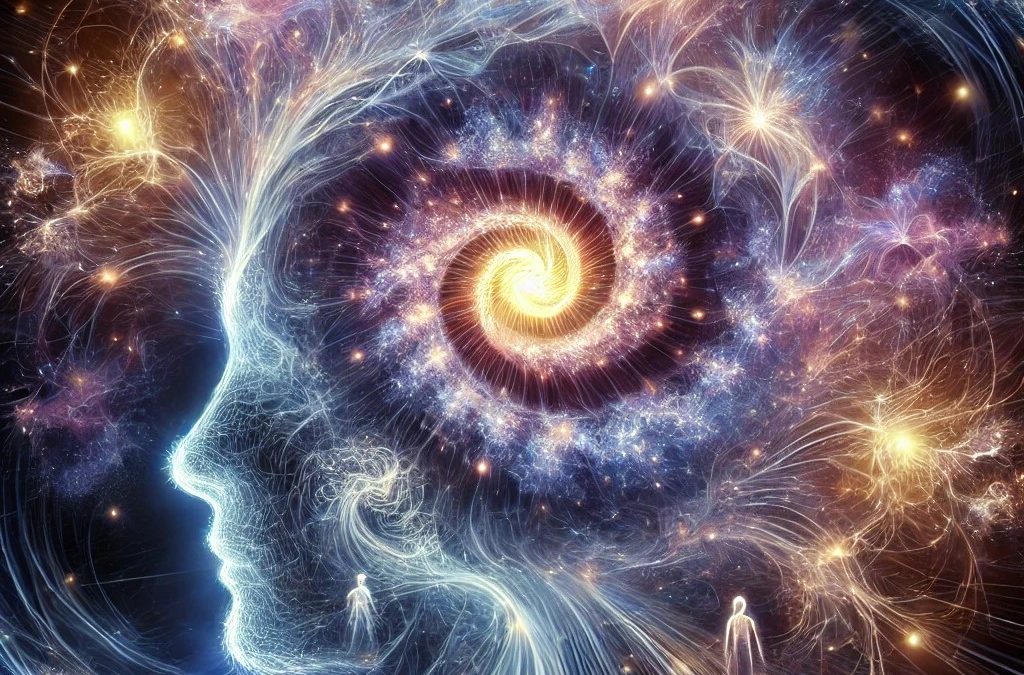
As Above, So Below: How Inner Alignment Shapes Outer Reality
February 11, 2025
Jung’s Synchronicity and the Collective Unconscious: The Hidden Threads Between Mind and Reality
February 14, 2025Introduction: The Mystery of Consciousness
Despite centuries of philosophical inquiry and scientific exploration, consciousness remains one of the greatest unsolved mysteries. How does subjective experience arise? What is the relationship between the mind and the physical world? David Chalmers, a leading philosopher of mind, argues that consciousness is not just a byproduct of the brain—it is a fundamental aspect of reality, much like space and time.
Chalmers’ theory challenges materialist assumptions and forces us to reconsider the nature of our existence. If consciousness is a fundamental property of the universe, what does that mean for how we understand ourselves, our interactions, and the world around us? This blog explores Chalmers’ perspective and its profound implications for human life and personal meaning.
Chalmers’ Hard Problem of Consciousness
Chalmers famously distinguished between two types of problems in consciousness studies:
📌 Easy Problems: These involve explaining how the brain processes information, makes decisions, and responds to stimuli—tasks that neuroscience is progressively mapping.
📌 The Hard Problem: This asks why subjective experience exists at all. How does the firing of neurons produce the richness of human experience—the sensation of color, the taste of coffee, the feeling of love or fear? Why does consciousness feel like something rather than being purely mechanical?
This problem is “hard” because it is not just about function, but about experience itself. While we can measure brain activity, we cannot measure what it is like to be someone having an experience.
🚀 This leads Chalmers to propose a radical idea: Consciousness is not something that emerges from matter—it is fundamental to reality itself.
Consciousness as a Fundamental Property of the Universe
Chalmers suggests that consciousness should be treated as a basic, irreducible component of the universe, like space, time, and mass. This idea, sometimes linked to panpsychism, implies that some form of consciousness pervades all things at a fundamental level.
📌 Key Aspects of the Theory: ✔ Consciousness is not an illusion: Many materialists argue that consciousness is a byproduct of neural complexity, but Chalmers insists that subjective experience is real and cannot be explained away. ✔ Physics needs new foundations: If current scientific models cannot explain why we have inner experience, perhaps we need a deeper framework that integrates consciousness as a fundamental property. ✔ The Universe May Be “Mental” at Its Core: While this does not mean rocks and atoms have human-like thoughts, it suggests that some form of awareness exists as an intrinsic feature of the cosmos.
🚀 If consciousness is fundamental, this means that our subjective experience is not an accident of biology, but part of the deep structure of existence itself.
Why This Theory Matters to Each of Us
If Chalmers is right, and consciousness is fundamental, this radically shifts our understanding of human nature, ethics, and even the way we live our daily lives. Here’s how:
🔹 1. You Are Not Just Your Brain
- If consciousness is fundamental, then your awareness is not merely an illusion created by neurons—it is a real, intrinsic part of the universe.
- This challenges strict materialist views that reduce human beings to biological machines and instead places experience at the core of reality.
🔹 2. Reality Is More Connected Than We Think
- If consciousness pervades reality, then our inner worlds and the external universe may not be as separate as we assume.
- This aligns with ancient philosophical traditions (e.g., Hermeticism’s “As Above, So Below”) and modern quantum mechanics, which suggests that the act of observation affects reality.
🔹 3. Science and Spirituality May Be More Compatible Than We Assume
- While Chalmers does not argue for religion, his theory creates space for the idea that mind and matter are deeply intertwined.
- This opens the door for a new kind of scientific inquiry—one that includes consciousness as a core aspect of the universe rather than a side effect of evolution.
🔹 4. Meaning May Be Built into Reality
- If consciousness is fundamental, meaning is not something we impose onto the universe—it may be woven into the very fabric of existence.
- This challenges nihilistic perspectives and invites us to consider that our experiences, thoughts, and awareness are not accidental but deeply connected to reality itself.
🚀 Chalmers’ theory gives us a new lens through which to understand ourselves—not as passive observers in a cold, indifferent universe, but as conscious participants in a reality where experience is fundamental.
Conclusion: A New Paradigm for Understanding Consciousness
David Chalmers’ idea that consciousness is a fundamental aspect of reality is more than just a philosophical abstraction—it challenges us to rethink our very existence.
🔥 If consciousness is real and irreducible, then we are more than just biological machines—we are expressions of something deeper, something woven into the cosmos itself.
🔥 If experience is fundamental, then perhaps alignment with ourselves, others, and reality is not just a psychological need, but a reflection of the structure of existence itself.
Chalmers’ theory is not just about science or philosophy—it is about what it means to be alive.
🚀 If consciousness is fundamental, then how we cultivate our awareness, how we align ourselves with reality, and how we engage with the unknown may be the most important questions we can ask.
